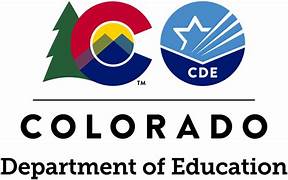Colorado Homeschool Information
—Homeschool In Colorado—
Homeschooling in Colorado




Find Out What the State Says About Home Education

Colorado Homeschool

7. Assessments
-
Required in grades 3, 5, 7, 9, and 11.
-
Options: Take a nationally standardized test (e.g., Iowa, Stanford) or have a qualified evaluator conduct an assessment.
-
Students must score above the 13th percentile or be deemed as making sufficient academic progress.
-
Submit results to either the local school district or chosen umbrella/private school.
8. High School Graduation
-
No state-defined graduation criteria for homeschoolers.
-
Parents (or umbrella schools) determine diploma and transcript requirements.
9. Extracurricular & Public School Access
-
Homeschooled students may participate in school district-based extracurricular and interscholastic activities on equal basis.
Colorado K-12 School Choice

🏠 Homeschool & Hybrid Enrichment
-
Families must register homeschooling with the Colorado Department of Education, and undergo periodic assessments.
-
Many districts offer part-time enrichment programs—such as Montessori, STEAM, outdoor education—for homeschoolers.
🧒 Early Childhood & Preschool
-
Colorado Universal Preschool (UPK) provides free half-day preschool for 4-year-olds and tuition assistance for low-income 3-year-olds.
-
In Denver, the DPS SchoolChoice system integrates UPK with an early-education application and manages preschool slots via lottery.
💸 Private Schools & Vouchers
-
Colorado does not have a statewide voucher or private-school tax-credit program; parents pay tuition or seek private scholarships.
-
Douglas County had a voucher system, but it was repealed after legal and political backlash.
-
In 2024, Amendment 80, which would have enshrined a constitutional right to “school choice” (potentially opening path to vouchers), was defeated with just under 50% support.
Colorado School Choice Summary
Colorado offers a wide range of public school choice programs, plus options for online learning, homeschooling, and preschool. Here’s a breakdown:
🎓 Public School Choice
1. Open Enrollment
-
Thanks to the 1990 Public Schools of Choice Act, Colorado allows inter- and intra-district open enrollment.
-
Students can “choice in” to any public school (traditional, magnet, charter) in their district—or even elsewhere in the state—subject to availability.
2. Charter Schools
-
Over 270 tuition-free, publicly funded charter schools, independent or district-authorized, serving ~15% of students.
-
Authorized either by local districts or by the Colorado Charter School Institute (CSI), which oversees performance and renewal.
3. Innovation Schools
-
Local district-run schools with waivers from state/district rules, enjoying autonomy in staffing, budgeting, scheduling, etc.
-
Nearly 90 innovation schools exist statewide.
4. Magnet/Option/Focus Schools
-
Designed around themes (STEM, arts, languages), these district-run schools serve students from across attendance zones.
-
May feature selective admissions.
5. Contract (“Option”) Schools
-
Under agreements between districts and external providers, some charter or alternative programs operate as contract schools.
🌐 Online Education
-
Since 1998, districts and charter schools have operated online or blended learning programs.
-
Colorado currently hosts 22 multi-district and 23 single-district online schools.
Homeschool Resources for Colorado
Homeschooling has been part of education for centuries. In earlier times, it was simple to begin without worrying about rules or oversight. Today, however, homeschooling regulations vary by state, and some families may find it more challenging to get started. That’s why NFC Academy provides helpful state-specific pages outlining homeschool laws—to guide and support you as you begin your journey.
In areas with stricter requirements, having reliable support is important. Organizations like the Home School Legal Defense Association (HSLDA) offer valuable legal guidance and protection, helping families stay informed and confident. With the right tools and resources, homeschooling can be a rewarding and manageable experience, no matter where you live.
Information on this page is intended for informational purposes for homeschool families in the specific state. The information supplied does not, nor is it intended to, provide specific legal advice. For specific legal advice, we recommend you consult an attorney. Membership with Homeschool Legal Defense may provide legal information for your situation, but you may prefer a local private attorney to review your situation to provide specific legal advice.



